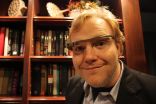(Press-News.org) Indian scientists are significantly more religious than United Kingdom scientists, according to the first cross-national study of religion and spirituality among scientists.
The U.K. and India results from Religion Among Scientists in International Context (RASIC) study were presented at the Policies and Perspectives: Implications From the Religion Among Scientists in International Context Study conference held today in London. The conference was sponsored by the Religion and Public Life Program and the Baker Institute for Public Policy. The U.K. results were also presented at the Uses and Abuses of Biology conference Sept. 22 at Cambridge University's Faraday Institute in Cambridge, England.
The surveys and in-depth interviews with scientists revealed that while 65 percent of U.K. scientists identify as nonreligious, only 6 percent of Indian scientists identify as nonreligious. In addition, while only 12 percent of scientists in the U.K. attend religious services on a regular basis -- once a month or more -- 32 percent of scientists in India do.
Elaine Howard Ecklund, Rice's Autrey Professor of Sociology and the study's principal investigator, said the U.K. and India data are being released simultaneously because of the history between the U.K. and India. She noted that their differences are quite interesting to compare.
"India and the U.K. are at the same time deeply intertwined historically while deeply different religiously," Ecklund said. "There is a vastly different character of religion among scientists in the U.K. than in India – potentially overturning the view that scientists are universal carriers of secularization."
Despite the number of U.K. scientists identifying themselves as nonreligious, 49 percent of U.K. survey respondents acknowledged that there are basic truths in many religions. In addition, 11 percent of U.K. survey respondents said they do believe in God without any doubt, and another 8 percent said they believe in a higher power of some kind.
Ecklund noted that although the U.K. is known for its secularism, scientists in particular are significantly more likely to identify as not belonging to a religion than members of the general population.
"According to available data, only 50 percent of the general U.K. population responded that they did not belong to a religion, compared with 65 percent of U.K. scientists in the survey," Ecklund said. "In addition, 47 percent of the U.K. population report never attending religious services compared with 68 percent of scientists."
According to the India survey, 73 percent of scientists responded that there are basic truths in many religions, 27 percent said they believe in God and 38 percent expressed belief in a higher power of some kind. However, while only 4 percent of the general Indian population said they never attend religious services, 19 percent of Indian scientists said they never attend.
"Despite the high level of religiosity evident among Indian scientists when it comes to religious affiliation, we can see here that when we look at religious practices, Indian scientists are significantly more likely than the Indian general population to never participate in a religious service or ritual, even at home," Ecklund said.
Although there appear to be striking differences in the religious views of U.K. and Indian scientists, less than half of both groups (38 percent of U.K. scientists and 18 percent of Indian scientists) perceived conflict between religion and science.
"When we interviewed Indian scientists in their offices and laboratories, many quickly made it clear that there is no reason for religion and science to be in conflict; for some Indian scientists, religious beliefs actually lead to a deeper sense of doing justice through their work as scientists," Ecklund said. "And even many U.K. scientists who are themselves not personally religious still do not think there needs to be a conflict between religion and science."
The U.K. survey included 1,581 scientists, representing a 50 percent response rate. The India survey included 1,763 scientists from 159 universities and/or research institutions. Both surveys also utilized population data from the World Values Survey to make comparisons with the general public. In addition, the researchers conducted nearly 200 in-depth interviews with U.K. and Indian scientists, many of these in person.
The complete study will include a survey of 22,000 biologists and physicists at different points in their careers at top universities and research institutes in the U.S., U.K., Turkey, Italy, France, India, Hong Kong and Taiwan -- nations that have very different approaches to the relationship between religious and state institutions, different levels of religiosity and different levels of scientific infrastructure. Respondents were randomly selected from a sampling frame of nearly 50,000 scientists and compiled by undergraduate and graduate students at Rice University through an innovative sampling process. The study will also include qualitative interviews with 700 scientists. The entire RASIC study will be completed by the end of 2015.
Rice University's Baker Institute Science and Technology Fellow Kirstin Matthews and C.V. Starr Transnational China Fellow Steven Lewis serve as co-principal investigators for the project. The project is funded by a grant from the Templeton World Charity Foundation. A related study that is part of the research initiative is funded by the National Science Foundation and examines Ethics among Scientists in China, U.K. and U.S.
INFORMATION:
More information about the studies is available at rplp.rice.edu or http://www.elainehowardecklund.com/.
An image of Elaine Howard Ecklund is available here:
http://news.rice.edu/wp-content/uploads/2014/09/0915_ECKLUND.jpg
Photo courtesy: Jeff Fitlow/Rice University
This news release can be found online at http://news.rice.edu/.
Follow Rice News and Media Relations via Twitter @RiceUNews.
Located on a 300-acre forested campus in Houston, Rice University is consistently ranked among the nation's top 20 universities by U.S. News & World Report. Rice has highly respected schools of Architecture, Business, Continuing Studies, Engineering, Humanities, Music, Natural Sciences and Social Sciences and is home to the Baker Institute for Public Policy. With 3,920 undergraduates and 2,567 graduate students, Rice's undergraduate student-to-faculty ratio is 6.3-to-1. Its residential college system builds close-knit communities and lifelong friendships, just one reason why Rice has been ranked No. 1 for best quality of life multiple times by the Princeton Review and No. 2 for "best value" among private universities by Kiplinger's Personal Finance.
Indian scientists significantly more religious than UK scientists
2014-09-24
ELSE PRESS RELEASES FROM THIS DATE:
Drivers, don't trade in your smartphone for Google Glass yet
2014-09-24
Texting while driving with Google Glass is clearly a distraction, a new University of Central Florida study has concluded -- but there is a twist. In the study, texting Glass users outperformed smartphone users when regaining control of their vehicles after a traffic incident.
"Texting with either a smartphone or Glass will cause distraction and should be avoided while driving" said UCF researcher Ben Sawyer. "Glass did help drivers in our study recover more quickly than those texting on a smartphone. We hope that Glass points the way to technology that can help deliver ...
Less costly to screen for and treat early-stage lung than to treat late-stage lung cancer
2014-09-24
DENVER – The average cost to screen high-risk individuals for developing lung cancer with low-dose computed tomography (LDCT) plus the average cost of curative intent treatment, like surgery, is lower than the average cost to treat advanced stage lung cancer, which quite rarely results in a cure.
The National Lung Cancer Screening Trial (NLST) has previously shown that LDCT screening of people at high-risk for lung cancer reduces lung cancer mortality by 20%, thus many organizations including the United States Preventative Services Task Force (USPSTF) have recommend LDCT ...
Customer experience matters more when economy is strong, research shows
2014-09-24
ATLANTA—Customers care more about their past experiences with service firms when the economy is doing well, according to a research team from the J. Mack Robinson College of Business at Georgia State University.
The researchers found it is more important for service firms to focus their resources and efforts on improving customer experience when economic times are good, as opposed to when the economy is down. This new finding contradicts previous beliefs that firms should increase their efforts to improve customer experience during difficult economic times to hold on ...
NRL researchers develop novel method to synthesize nanoparticles
2014-09-24
WASHINGTON – Scientists at the U.S. Naval Research Laboratory (NRL) Materials Science and Technology Division have developed a novel one-step process using, for the first time in these types of syntheses, potassium superoxide (KO2) to rapidly form oxide nanoparticles from simple salt solutions in water.
"Typically, the synthesis of oxide nanoparticles involves the slow reaction of a weak oxidizing agent, such as hydrogen peroxide, with dilute solutions of metal salts or complexes in both aqueous and non-aqueous solvent systems," said Dr. Thomas Sutto, NRL research chemist. ...
Most stars are born in clusters, some leave 'home'
2014-09-24
Washington, D.C.—New modeling studies from Carnegie's Alan Boss demonstrate that most of the stars we see were formed when unstable clusters of newly formed protostars broke up. These protostars are born out of rotating clouds of dust and gas, which act as nurseries for star formation. Rare clusters of multiple protostars remain stable and mature into multi-star systems. The unstable ones will eject stars until they achieve stability and end up as single or binary stars. The work is published in The Astrophysical Journal.
About two-thirds of all stars within 81 light ...
King Fire in California still blazing
2014-09-24
Over 92,960 acres have been burned by the King Fire since it began on September 13, 2014. The fire is currently 38% contained, and the cause of the fire is arson. Over 7,600 personnel are battling this fire.
With the southwest winds there is a potential for extreme fire behavior if the winds, fuels, and topography come into alignment. There is the possibility for single and group tree torching, upslope crown runs, and spotting up to 1/2 mile. The highest probability is on the northwest portion of the fire. A Red Flag warning remains in effect for this fire. A Red ...
Study: Pain keeps surgery patients awake, extends hospital stay
2014-09-24
DETROIT – Pain can make it difficult for some patients to get a good night's rest while recovering in the hospital following certain surgical procedures, often resulting in longer hospital stays, according to researchers at Henry Ford Hospital in Detroit.
The study shows patients who reported poor sleep while in the hospital following total hip replacement or knee replacement surgery had higher pain scores.
"Our results show that increased pain scores result in deceased sleep duration," says study lead author Anya Miller, M.D., with the Department of Otolaryngology-Head ...
Survey: Costs of ACA health insurance in Texas vary significantly depending on income
2014-09-24
HOUSTON – (Sept. 24, 2014) – The cost of monthly premiums for health insurance plans for Texans under the Affordable Care Act (ACA) can vary by hundreds of dollars, depending on a person's income and the level of coverage chosen, according to a report released today by the Episcopal Health Foundation and Rice University's Baker Institute for Public Policy.
The report found Texans earning about $17,000 a year were offered free premiums on some ACA Marketplace health insurance plans because of federal tax credits. However, a person who makes around $35,000 a year would ...
Organ donation: Do we opt-in or opt-out?
2014-09-24
Researchers say there should be an international database containing the very latest information about organ donations and transplants, so policy makers can make informed decisions on whether to adopt an opt-out or opt-in system.
The call comes after a study, carried out by The University of Nottingham, the University of Stirling and Northumbria University, showed that overall an opt-out system might provide a greater number of organs for transplant but many factors can influence the success of either system and a repository of accessible information would help individual ...
Recreational activity a major pollutant on Canadian coast of Pacific Ocean
2014-09-24
From recreational boats and fishing vessels to commercial cruise ships and private marinas, a newly published study shows that oil discharges related to human maritime activity on the Canadian coast is posing a major threat to marine ecosystems in the Pacific Ocean.
The study – published in the August edition of the journal Applied Geography, with University of Calgary associate professor in geography Stefania Bertazzon as lead author – provides a geospatial analysis of oil discharges in the Canadian Pacific Ocean.
The findings show that a large portion of oil discharge ...




